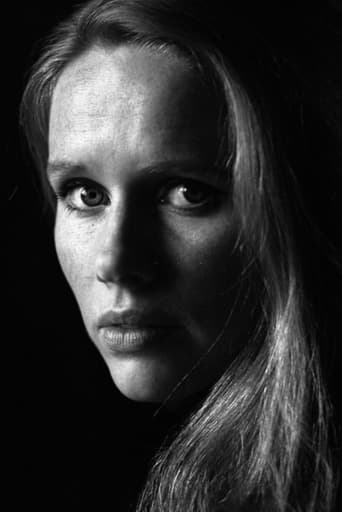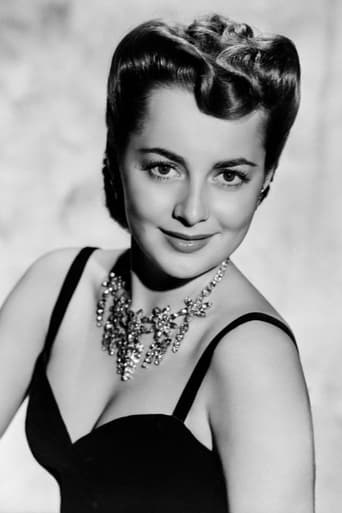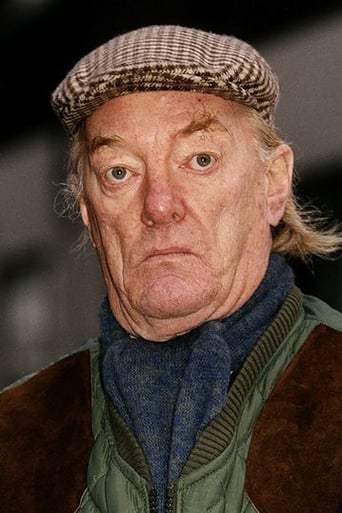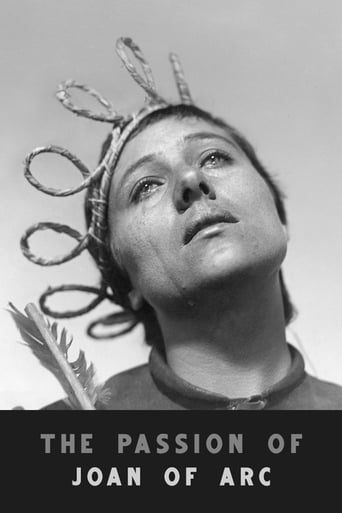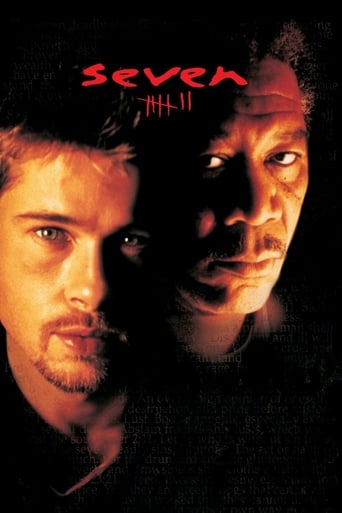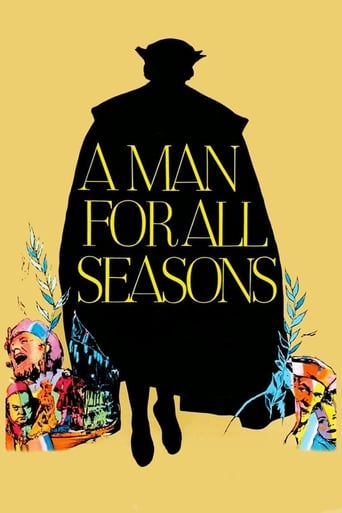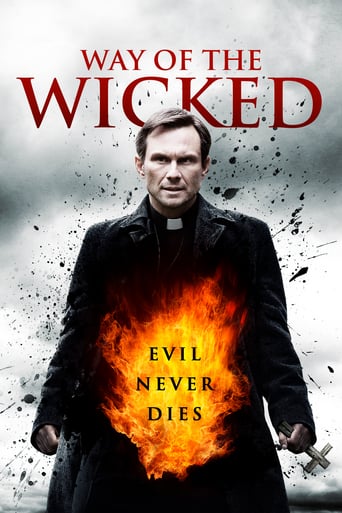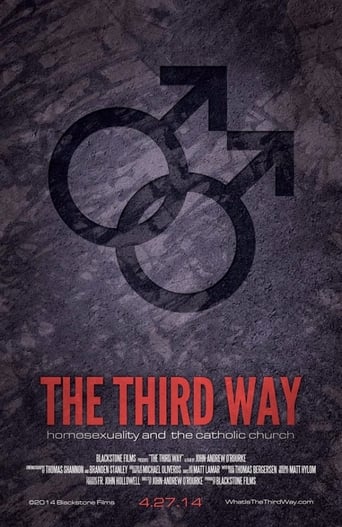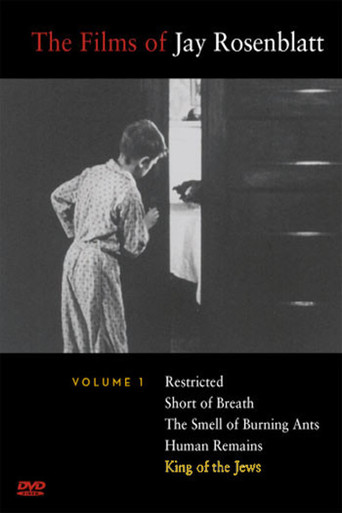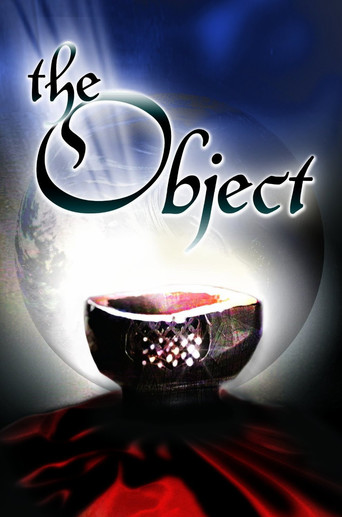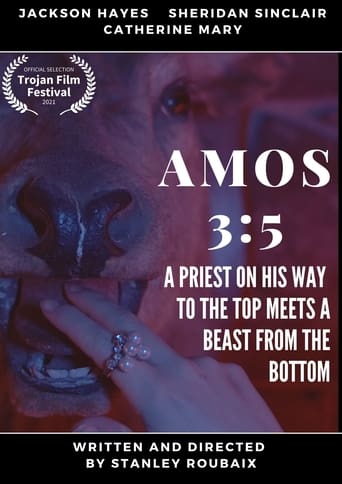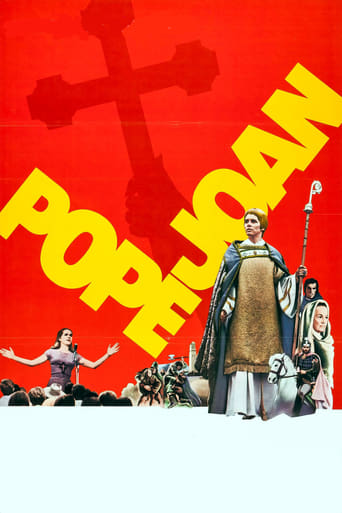
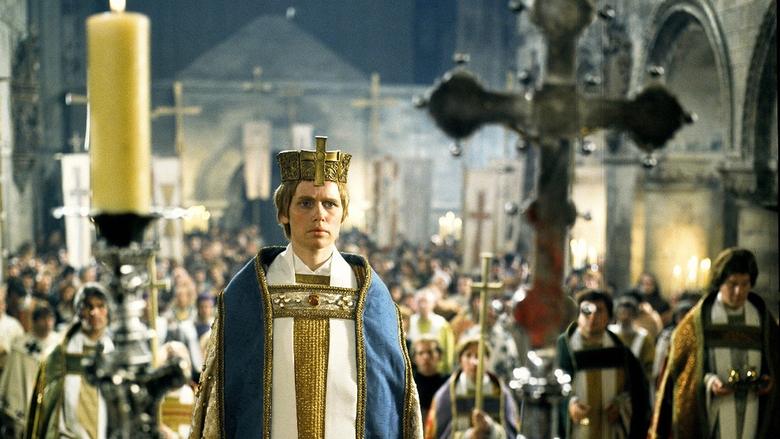
Pope Joan (1972)
Based on the medieval legend of Pope Joan, who was made Pope for a brief period around 855 A.D. The movie presents her existence as fact, though it is questionable that Pope Joan really did exist, and portrays her relationships with other notables of the time.
Watch Trailer
Cast


Similar titles
Reviews
In the Middle Ages, there were a lot of legends and tales about people whose lives attracted the society. From today's perspective, we could call them a sort of "medieval sensations." One of such was promoted by Martin of Opava (also known as Martin the Pole) through his work "Chronicon Pontificum Et Imperatum". This allegedly inspired a legend about a simple girl named Joan born in Mainz who joined the abbey and desired only to be a faithful nun. However, her biggest problem was the lust she could not resist, lust towards men. When she found a way to fulfill her carnal pleasures, that did not suffice. Joan struggled for more...for power in church. Having got the education at Athens, she left for Rome disguised as a man where she preached the word of God and soon became a cardinal and, in 852, the head of the Holy See. This legend was never found true, some of the Church hierarchies considered it anti-papal satire, some ignored it. Yet, in 1972 Michael Anderson decided to make a movie.As the theme could be quite interesting for the script, the film generally does not do a good job. Although its beginning is pretty interesting and involving constituting a nice presentation of Joan's childhood and her desire for knowledge, later, it spoils a lot. Some serious mistakes that concern introducing historical reality result in poor effects and disappointment. The Roman Catholic Church is showed in a negative manner: monks appear to be ruled only by flesh and rape Joan before she enters the convent; there is practically no chastity among clergy and nuns. Joan takes the forbidden fruit and, having seen that the man she likes makes love to another nun, goes to her room and masturbates. Papal Rome is corrupted and accepts cardinals whoever there is at hand. Those are seriously wrong aspects that supply the viewer with a manipulated vision of Catholics and Church history. But, among them, what made me most angry was the mention of St Thecla. She was, according to the legend, a martyr in Nero's Rome and, most probably, a companion of St Paul in his journeys. She did not have the power as it is mentioned in the film but she only served the Apostle the same way Mary Magdalene served the Apostles. It was a pure female service short of search for power or for satisfaction. And here, Joan justifies her deeds saying that St Thecla had the power as a female. So as for the execution of the story, I would rate this film as 1/10. But fortunately, I can also find something positive about the movie, too.The strongest point of POPE JOAN are the cast. Liv Ullman fits very well to the lead. She not only expresses desire in a convincing way but also feelings sublime, feelings of faith. The best of her scenes is, I think, the moment Joan consoles the dying. Young Sharon Winter who plays Joan as a child also does a memorable job and the moment she reads the Bible to the elderly and is applauded is both involving and unforgettable. Franco Nero is perfect as Louis who has a taste for girlish women and powerful companions. There is also some little nice part of Lesley Anne Down who portrays innocent-looking nun Cecilia. But three great stars of cinema really rock: these are Trevor Howard, Maximilian Schell and Olivia De Havilland. Howard is marvelous as Pope Leo for whom the most horrific hell would be an eternal bath in cold water. Olivia De Havilland convincingly depicts Mother Superior in the convent. Maximilian Schell is terrific as Adrian, the painter who lets young maid-nun try the Forbidden Fruit and female preacher-cardinal-pope use Forbidden Rights.But coming back to the content, one thing made me quite confused...even if the story would have some "history" (I now refer more to Martin of Opava), how is it possible that no one recognized a woman in Pater Johanes, Cardinal Johanes and finally the pope Johanes? The pope Leo was only suspicious about "his" lovely gentle hands... In the film, it is Louis (Franco Nero) who manages that and in the most shocking scene, he starts to make love to the female pope. However, historically, it's a total fairy tale. As for the Saracens, there is no such mention even in Martin's.Good use is made of music in the film but much more the musical score than the Gregorian chants that we hear from time to time. The Gregorian chant was absolutely different those days, most of the melodies resemble much later Middle Ages than the 9th century period. Yet, there appears one of the most popular hymns of the Church attributed to Rabanus Maurus (776-856) "Veni, Creator Spiritus". Difficult to say if it had that melody but indeed beautiful sung till now at important moments. By the music, however, I mostly mean the background to the scenes: delicate, profound, nice to hear. Consequently, the soundtrack from the movie would be interesting to get.All in all, this film in its content should be treated like some movies on important religious themes recently made - all is a fairy tale, just a resemblance of the director's imagination with serious historical flaws. Hope this movie will not be harmful for anyone... 4/10
I found the film version of the Pope Joan story compelling viewing because it conveyed the force and importance of Joan's spiritual calling yet portrayed her as an breathing human being (this may be somewhat ironic since it is possible she is only a legend). Here is a woman who hears God's voice and the voice of carnal longing. She is neither the lowly whore nor the ethereal virgin. Also, it is refreshing to see films where spirituality and belief in God are taken seriously.I found the performances to be excellent, especially those of Liv Ullman and Trevor Howard. Ullman is very good at portraying the vertical pull of spirituality and the wrenching ambiguity of living in the material world. Trevor Howard's performance was utterly convincing. Also, Susan Winter had a quiet presence about her in her brief performance as the young Joan, which impressed me. What a tenuous thing to be a young girl in the Medieval age - what a microcosm she is of all human existence.This film has its flaws, most notably the disjointed editing and jarred pacing. I do not quibble, however, with the less than ideal sound quality of the dialog or the occasional white lines which momentarily appear on the screen now and again because when I watch a film, I accept the film on its own terms; I do not wish it was something it isn't - a film made on a modest budget in 1972 should not be expected to look and sound like a mega-budget blockbuster filmed in 2006. On the whole, this movie is a success. Cautionary note: not a movie for kids.
I briefly, upon commencing my commentary, read all the not so many other comments here.One could say they contradict each other, some love it, more others tend to see the cast wasted and the whole experience of watching this movie degraded.Maybe some rich Hollywood producers just engaged a well-known actor crew.Especially Schell and the old actor, playing the old pope and looking to me like Sir Laurence Olivier, really seem a high-leveled cast - of course, maybe it's not an important chapter of history, maybe, as always in normal first-view cinema cuts, the whole work of art has been re-cut over and over , but Liv Ullman is great, and Schell plays wonderfully spicily.I would say that it is excellent and very satisfying that we got such a lot of critically conscious minds here at the IMDb commentary corner of this movie, even if there are only eight comments, nine now.But please: Laudate correctum et accusate correctum, mihi filii et filiae ["Praise the right and accuse the right, my sons and daughters" - it's just a phrase in Latin I made up :-) ].Bad is the production unit of the movie, that would be for example departments like editing, management (including casting: the resulting cast choice was superb, but only motivated by the intention of taking well-known stars to make the movie a success - still the actors shine and rise above all that business and greed), but then also the direction, governed by the script.But I think that the subject of a Pope Joan is a well-chosen one, it fits into my medieval fascination about Robin of Sherwood (which is NO children's series AT ALL!!!), Catweazle (also not only good for kids), Excalibur, King Arthur and so on, and of course, Lord of the Rings.The one saying this would not lead to any remake was CLEARLY wrong.A remake would be superb, if not done like all those many really wasted movies from 2000 on:I would HATE it if it looked like "Ghost Ship" (One Samuel Jackson or similar, all others teens, unwatchable from the start) or "Troy", where this stupid Pitt is playing an ancient Greek homosexual warlord in a rather ridiculous fashion, totally unconvincing. Also the camera-shots here are important. Over 30 minutes pass by and you're only watching the boys have fun. Well' I'm a hetero, and freely admit I like peppered video content. But if I go watch a movie, it should be what's written on the label. I don't wanna see Superman if I go to "Batman" either. Watching "Troy", you're worse off - you don't get Superman, you get a jerk that flirts around all the time with his favorite "boyfriend" and then shortly bashes some "evil" Trojans down.Modern cinema. Disgusting. No offense meant to ANY gay guy.It's clear that this movie (Troy) presents long overthrown clichés along with a badly acted and cut script and scenery.What's also clear is, that most modern remakes are done in EXACTLY that fashion. Because people don't care anymore, people mostly don't have culture and style, meaning autonomy and criticalness of thought, anymore.Or take "Titanic". Basically you can take all and remake it so that there is a budget of approx. some 100 Million Dollars, but the movie itself is either too FX-overloaded, or the acting is so bad that its unwatchable if you got SOME tiny brains, I really LAUGH OUT LOUD here.Lord of the Rings is different there, as we all agree, cuz Jackson's not only interested in money, but also in fame which is much more important, and I mean that! I enjoyed watching Pope Joan, but also enjoyed a lot the critical atmosphere here, even if too critical.All actors got screwed and betrayed by their directors and producers in their early times.I enjoyed Pope Joan for its acting performances - as an intellectual, I loathe for example the institution of the church, and as a pro-Palestinian, anti-Zionist, alternative, but traditional Jew, I am very much in opposition towards the state of Israel and its current deed or crime of attacking the Lebanon. Already in the Sixties, the Israelis destroyed Beirut, they bombed it to the ground. But please, let us commit neither antisemitism, nor, as I said, too much blindness towards the sins of the state of Israel. It is the source of many wars, but nevertheless fascinating and a REAL imagination of Zion or "Paradise" or "Heaven", that all continental religions, except maybe the pagan, partially Nordic culture, have a strong feeling of connection towards Jersalem. I say "Next in Jerusalem" and I mean peace and understanding by that, which implies critical reflection and the struggle against many inhumane acts of both state, institutions and the individual. I cut away any too emotional pseudo-religious meaning of the movie in its every second in my mind and there we go: As stated by others here, ONLY THE FINEST ACTING.Those re-cutters and money-givers did NOT succeed in wasting those actors Ullman and Schell, I think, it's very unjust that the movie got so little attention in 72.
I saw the film on TV, quite by chance. I found the film gripping: the story, the atmosphere and the historical detail. I have no religious interest, but it made me curious to find out more about 'pope Joan'. The film is a work of fiction based on a legend, with very little factual basis. Nevertheless, one could really get a sense of life in those times (9th century Europe). Poverty, illiteracy, corruption. The place of women. The violence, that life was worth very little. Sadly, I think much of the world is just like that today, so perhaps it is a little window on humanity.


